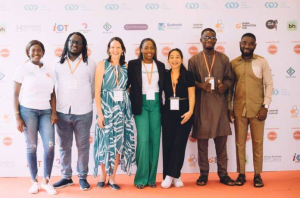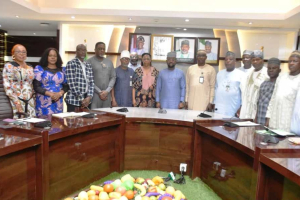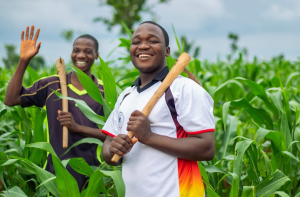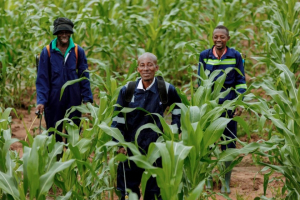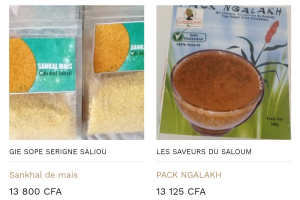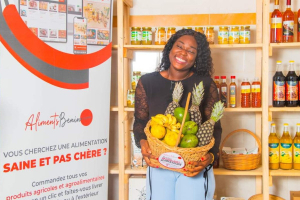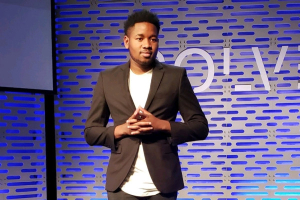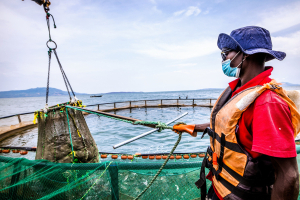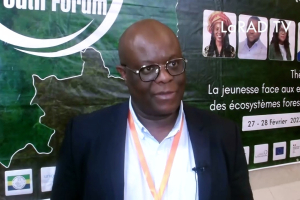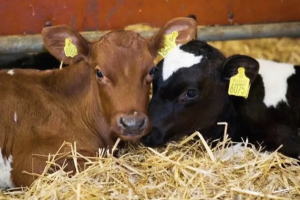MEST Africa Challenge 2024 Opens for Agri-Tech Startups in West Africa
MEST Africa is inviting emerging tech entrepreneurs to participate in the MEST Africa Challenge (MAC) 2024. As Africa’s premier pitch competition, MAC 2024 will focus on agri-tech startups in West Africa.
The winning startup will receive investment capital, coaching, and access to a global network of resources. Applications open on August 26, 2024, and close on October 4, 2024, with virtual semifinals scheduled for October 29-30, 2024.
Eligible startups must have a minimum monthly revenue of $5,000, raised less than $1 million in funding, and have been operating for three years or less. All participants will pitch in English.
Nigeria to Develop a Database of Farmers to Better Meet Their Needs
Agriculture is a strategic economic sector that generates wealth and employment in Africa. However, a number of countries are still struggling to organize it effectively. Digital technology can help to overcome this weakness
The Federal Ministry of Agriculture and Food Security has inaugurated a Technical Working Group (TWG) focused on developing a seamless database to accurately identify Nigerian farmers, a press release by the Federal Ministry of Information and National Orientation dated August 17 revealed. The initiative, led by Permanent Secretary Mr. Temitope Fashedemi, aims to improve the distribution of agricultural inputs and support to farmers across the country.
During the inauguration ceremony, held recently at the Ministry’s Conference Room in Abuja, Fashedemi emphasized the importance of this initiative in shaping the future of Nigeria's agricultural sector. He noted that a reliable database would enable the Ministry to more effectively deliver services and resources to the farmers who need them most.
To achieve this goal, the Ministry plans to collaborate with the National Identity Management Commission (NIMC), which will play a crucial role in creating a robust database. The Permanent Secretary highlighted that this collaboration would help ensure the accuracy and completeness of the data collected, thereby enhancing the Ministry's ability to implement agricultural programs efficiently.
The TWG, comprising members from the technical departments of the Ministry and NIMC, has been tasked with developing effective modalities for collaboration between the Ministry and NIMC. The group's Terms of Reference (TOR) include creating a comprehensive work plan with clear timelines and roles, designing data collection tools to capture essential farmer information such as identification details, farm size, and crop types, and identifying training programs for field officers and data collectors to ensure data accuracy, the release further stated.
The database will help assess financial credibility for connecting farmers to microfinance and subsidy programs, facilitating access to credit and aid.
According to the latest data from the World Bank, agriculture, forestry, and fishing contributed approximately 22.72% to Nigeria’s GDP in 2023. This underscores the importance of the government's initiative to develop a comprehensive database of farmers. With agriculture being such a vital part of the economy, accurate data collection will enable a more targeted and effective distribution of resources, ultimately enhancing productivity and supporting economic growth.
Hikmatu Bilali
Agribusiness Challenge Seeks Entrepreneurs to Transform Food Supply Chain
The Agribusiness Innovation Challenge, co-created by the Nigeria Climate Innovation Center (NCIC) and the Global Alliance for Improved Nutrition (GAIN), invites young entrepreneurs aged 18-35 passionate about agriculture and technology to develop solutions to improve the food supply chain in Nigeria.
Winners will secure a 2,000,000 naira ($12,700) equity-free grant and other benefits, with applications closing on July 26th, 2024.
Ghana: CF Grower Helps Farmers Optimize Agricultural Production
To enhance the livelihoods of farmers, technology entrepreneurs have introduced a comprehensive solution designed to optimize production and streamline marketing processes.
Ghanaian start-up Complete Farmer has developed CF Grower, an agritech solution that allows farmers to enhance their productivity, gain access to global markets, and improve their livelihoods through data-driven agricultural tools and techniques. The Accra-based company, founded in 2017 by Charles Ofosuhene, Desmond Koney, and Zoussi Ley, has raised over $20 million since its inception to develop its technology and facilitate growth.
The platform, which does not have a mobile application, requires users to create an account using their email address and password. Once registered, users can access various services and establish a farm within days. CF Grower provides farmland for rent, hires qualified farm managers, and offers agricultural inputs and services for purchase to optimize farm production.
Users who already own farmland can add it to the platform, along with all the necessary information for an agricultural expert to support the project. If a user chooses to engage an expert from the start-up, the expert will provide online and on-site support throughout the agricultural season. The agritech solution leverages collected data and provides information to help achieve consistently high yields and profits across various crop families.
After harvest, users can sell their produce via the Complete Farmer network. The start-up facilitates connections between farmers and local and international buyers. Additionally, CF Buyer provides buyers with access to its network of growers and allows them to track the progress of their orders with complete transparency.
Adoni Conrad Quenum
Senegal: mLouma connects farmers and customers via its web and mobile platforms
Agricultural producers frequently face challenges in marketing their products. A new digital solution addresses this issue by directly linking them with potential buyers, streamlining the sales process.
Senegalese agritech startup, mLouma, has developed a digital marketplace that provides agricultural producers and suppliers with direct access to their customers via a web and mobile platform. The company, founded in 2012 by Aboubacar Sidy Sonko, is based in Dakar.
The application, available exclusively on Android, allows users to create either a producer or customer account. To do so, users need to provide the necessary information and complete the registration process. Customers can make purchases directly on the application or web platform, which features a variety of online boutiques selling local products.
To streamline payments, mLouma has integrated several mobile money payment systems. Also, for delivery, it has partnered with Senegalese startup Yobante Express. mLouma also features a USSD code service, designed to enable those without internet access to learn about products and prices, and to list products for sale on the mLouma platform. “This service was developed to enable people without internet access to inquire about products and prices, and to submit products for sale on the mLouma platform. This data will be recorded and displayed on the web platform after validation,” mLouma explains.
Since its launch, the mobile application has been downloaded more than a hundred times, according to Play Store data. In 2013, mLouma won the m-Agri Challenge organized by the World Bank.
Adoni Conrad Quenum
Aliments Bénin Connects Consumers and Producers in Benin
The bespoke solution was designed by a Beninese entrepreneur in a bid to enhance access to fresh produce.
In 2020, Beninese startup DigitAll Farmer introduced Aliments Bénin, an e-commerce platform that aims to enhance fresh product accessibility. The platform bridges the gap between consumers and producers, fostering a vibrant marketplace for agricultural goods.
Founded by Novalie Houngbédji, Aliments Bénin operates as a web-based platform, eliminating the need for a dedicated mobile application. Users access the platform via their browsers, where they register by providing their email address and creating a secure password. At this juncture, users make a pivotal choice, choosing the “seller” status for those marketing their products or the “customer” status for those seeking to make purchases.
Aliments Bénin boasts an extensive array of offerings, ranging from locally-produced beverages to butchered meats, grocery staples, fresh fruits, vegetables, cereals, tubers, and seafood. By connecting producers directly with consumers, the platform has catalyzed awareness and amplified sales for nearly a hundred agricultural entrepreneurs. Households, restaurants, and pastry shops alike have embraced the convenience of ordering quality agri-food products at equitable prices.
“We were able to help nearly 100 producers increase the awareness of their products and increase their sales by more than 7,000,000 FCFA [11,500 USD] in 2021. Several households, restaurants, bakeries, and others were able to order and have quality agri-food products delivered to them at fair prices,” Novalie said in 2022.
To ensure swift fulfillment, Aliments Bénin also operates a delivery service. Once orders are placed, the platform takes charge, dispatching goods to customers across multiple communes within the country. The solution has earned DigitAll Farmer several recognitions, including the Encouragement Award (XOF5 million) at the 2021 Tremplin Startup UEMOA competition. Additionally, in November 2022, the platform secured third place in the inaugural Moov Africa Startup Challenge, earning an XOF1 million check and in-kind prize worth XOF540,000.
Adoni Conrad Quenum
Zimbabwe: Tafadzwa Chikwereti Empowers Farmers’ Climate Resilience Through Digital Tools
With climate change disrupting water resources, soil fertility, and crop health across Africa, agricultural entrepreneur Tafadzwa Chikwereti is turning to digital tools to empower farmers and boost their resilience.
Tafadzwa Chikwereti (photo), a young entrepreneur and graduate of the National University of Science and Technology, is the founder of agritech firm Murimi Electronic Agriculture (eAgro), established in 2020.
eAgro’s mission is to bolster farmers’ resilience to climate change, offering a suite of digital tools for climate-smart farming, including data analysis, artificial intelligence (AI), satellite imagery, and an intelligent agronomy tool, Cropfix. The company also provides a credit rating system through Credfarm, facilitating access to affordable financial services for farmers and agribusinesses.
Credfarm assists financial institutions in developing loans tailored to the needs of small-scale farmers by providing an agriculture-specific, data-driven credit risk assessment model.
eAgro’s smart farming platform, Cropfix, uses AI, satellite imagery, and natural language processing to deliver personalized agronomic advice to farmers via text, USSD, and WhatsApp, helping them detect and manage pests and diseases.
Chikwereti has received several accolades for his work. He was a finalist for the Anzisha Prize in 2021, won the Startupper of the Year award from Total Energies in 2022, and was a finalist for the Global Student Prize in 2023. He was also named one of the 12 finalists in the GoGettaz Agripreneur Competition organized by the Africa Food Systems Summit in Tanzania.
Melchior Koba
Kenya: Victory Farms Utilizes Big Data to Cut Fish Farming Spoilage
The Kenyan agritech company aims to be a modern and advanced alternative to its competitors. It uses megadata to improve its production.
Founded in 2015 by Joseph Rehmann and Steve Moran, Victory Farms is a Kenyan agritech company specializing in tilapia farming and commercialization. Through its web platform, users can purchase tilapia in bulk or per unit (depending on the size of the fish).
"We sell to mass market Africans via a highly innovative RTM cold chain which uses predictive data to push fish to thousands of market women every day all across Kenya with less than 1% spoilage. [...] This allows us to innovate and create more cost-effective solutions through our systems and the power of data to deliver a better, fresher product to more consumers," explained Joseph Rehmann, CEO of Victoria Farms, in 2022.
To place an order with Victoria Farms, buyers need to visit the startup’s web platform –as it currently has no mobile application, create an account, or sign in if they already have. They can then place their orders and pay using the mobile money service M-Pesa or via bank card before or at delivery.
To help buyers locate the nearest branches, the startup issued a USSD code that can be dialed to locate one or more of its 54 sales outlets where more than 15,000 market women stock up on fish.
Since its launch, the company has raised over $43 million to, among other things, improve its technology, develop its activities, and accelerate its growth both in and outside Kenya. “We’ve got several initiatives underway and planned to build the world’s first carbon-negative fish platform. And I think it’s very exciting because we’ve got a lot of tangible and measurable dimensions built into the business to achieve that,” indicated Joseph Rehmann.
Adoni Conrad Quenum
Congolese-born Dieu Donné Okalas Ossami provides advice and decision-making tools for agricultural producers
He has a PhD in computer science and has worked for several international firms. After venturing into the world of entrepreneurship, he launched an agritech startup that offers solutions to help stakeholders make the right decisions.
Dieu Donné Okalas Ossami (photo) is a trained computer scientist and tech entrepreneur. Born in Congo, he studied in France where he graduated (in 2002) with a Master of Advanced Studies in software engineering from the University of Franche-Comté. He also holds a PhD in computer science (in 2006) from the Marketing Academy in London, England.
In 2015, he founded E-Tumba, an agritech startup that combines mobile technologies, big data, connected objects, and mechanistic agronomic models to make productive and sustainable agriculture a reality in Africa. Based in Montpellier, France, it designs, develops, and supplies smart advisory and decision-support tools for agriculture and the environment for producers and technologically under-equipped areas in Africa.
His startup has designed and developed two main technological solutions. The first, Fieldsim, is a SaaS (Software as a Service) platform that helps producers make their agricultural sectors more sustainable. The solution, focused on agriculture and the environment, combines three service levels, namely industry management, advice, and decision support.
The second solution, BioFuncTool, is aimed at all players in the agricultural value chain. It is a digital solution comprising a mobile field application and a SaaS web application enabling non-specialists to measure, assess, and preserve the biodiversity of agricultural soils.
Since 2013, Dieu Donné Okalas Ossami has been an IT Security Analyst for VeriFone Systems France in Europe, the Middle East, and Africa. His professional career began in 2005 at I.U.T Nancy-Charlemagne, where he was an assistant professor.
A postdoctoral researcher at Compiègne University of Technology between 2006 and 2007, he joined electronic payment solutions provider Hypercom as head of payment platform security and compliance. He worked there from 2007 to 2011.
Melchior Koba
Kenya: DigiCow digitizes livestock management
DigiCow Africa Ltd has developed several digital solutions to help farmers. Among them, the DigiCow Dairy application, its major solution, has won several awards.
Digicow Dairy App is a mobile application developed by Kenyan start-up DigiCow Africa Ltd, formerly FarmingTech Solutions. It provides “verified, reliable, and timely information on animal husbandry” to farmers. The solution was launched by Peninah Wanja, a Kenyan practicing extension officer determined to address the challenges faced by farmers in her country after witnessing them firsthand.
“It's a gap that I saw because when you look at the statistics and what is on the ground, our government has provided one extension officer for close to 4,000 farmers. So, there is a need for these critical services,” the tech entrepreneur explains.
The Digicow app is available for Android devices only. Once installed, it enables farmers to register by providing all the necessary information on their livestock. Based on that information, Digicow assists the farmers in their various tasks by notably providing real-time reports and sending notifications concerning important cow breeding dates.
"The App is designed to use the data and feedback production, financial reports, breeding and health reports. The farmer has the option to access analyzed financial statements and receives important alerts such as dropped milk production, when to observe for heat signs, indicating a failed conception, and when to expect the cow to calf among other advisories," Digicow indicates, describing its Android app.
The app features a virtual training room, available 24 hours a day. The training room includes on-demand written audio and video content. There is also a real-time chat room where farmers can interact, exchange ideas, and discuss with group experts.
Thanks to the Digicow app, DigiCow Africa Ltd has set up an ecosystem to help farmers increase milk yields, ensure better herd health, and improve farm organization among other things. Digicow also has a lending mechanism designed to provide farmers with credit for personal and agricultural expenses.
In 2019, DigiCow was named Kenya's most innovative agritech in a World Bank challenge. It claims to work with over 200,000 farmers.
Adoni Conrad Quenum


